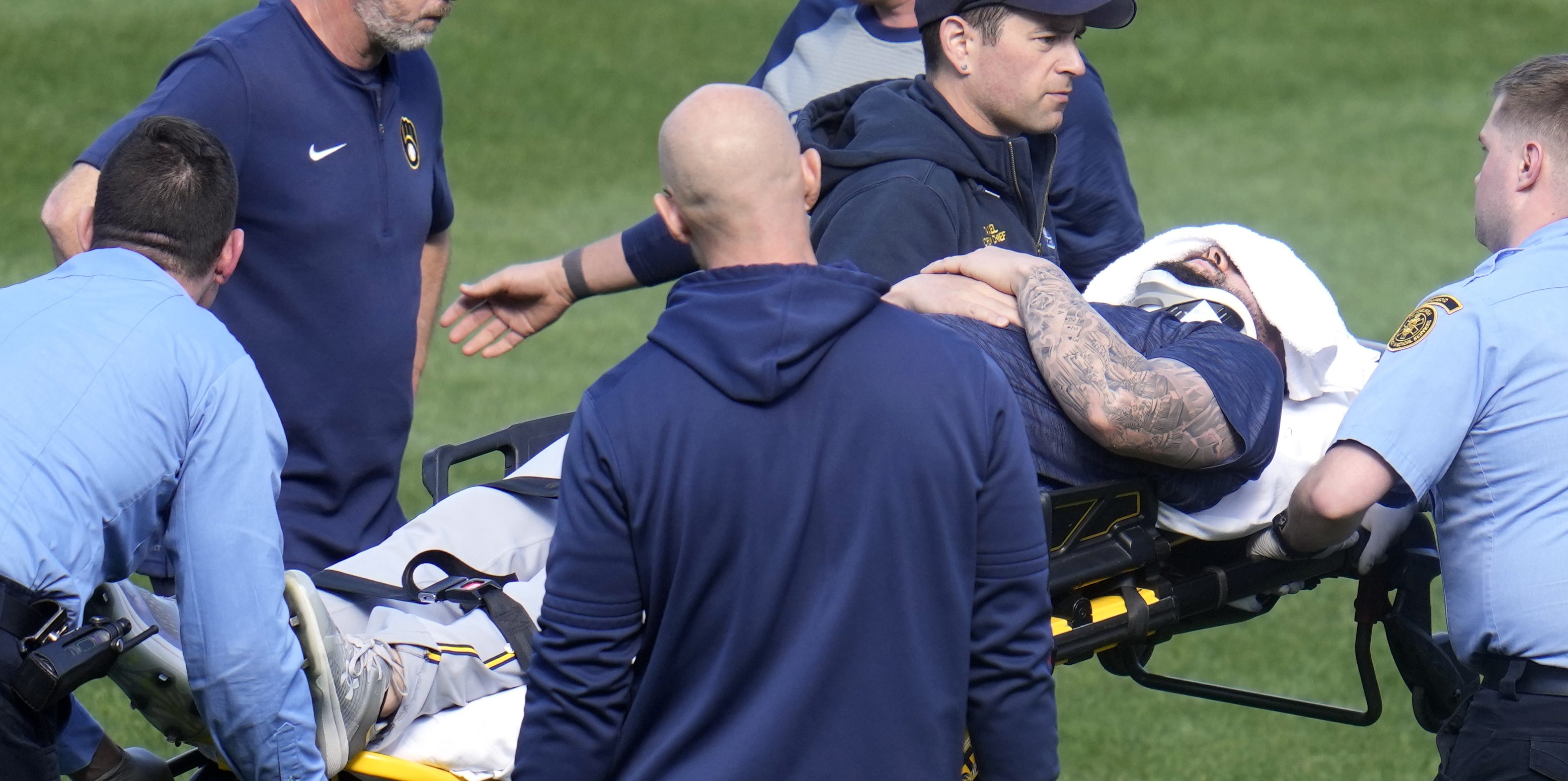The Phillies open spring training next week. The team will be counting on four recent staff hires to make a difference long- and short-term. This week, we profiled all four.
The series began Monday with new hitting coach Joe Dillon and continued Tuesday with new scouting director Brian Barber. On Wednesday, we took an in-depth look at new pitching coach Bryan Price, his philosophies and methods of communication.
We wrap things up today with a look at what makes Joe Girardi tick.
When Joe Girardi addresses his new ballclub for the first time on Day 1 of spring training next week, he won’t be alone.
Don Zimmer will be there. Joe Torre, for sure. Don Baylor and Tony La Russa, too. Ron Wellman and Dave Rogers, as well.
Jerry and Angela Girardi will also be there because for Joe Girardi, the new Phillies manager, every day is Take Your Parents to Work Day.
That becomes clear as soon as Girardi begins talking about the life experiences and examples that have shaped him as a man and a leader. He learned toughness, discipline, dedication, the value of hard work and the importance of finishing the job from his dad. He learned the importance of compassion, education and fighting in the face of adversity from his mom.
MLB
“Your parents die physically but they never really die because they live in your heart,” said the 55-year-old Girardi, sitting in his office at Citizens Bank Park one recent morning. “I have so much of my mom and dad in me.”
He recalled a day from his youth when his dad was fixing a bathroom faucet at the family home in Peoria, Illinois, and how this big, ol’ wrench slipped and nearly sheared off his dad’s thumb. Jerry Girardi, a piece of granite at 6-1, 220 pounds, grabbed an old tee shirt, wrapped up the gory details and got the damn faucet fixed before heading to the accident room. Many years later, Joe Girardi was on the Yankees’ team bus headed for the train station and a trip to Baltimore when he learned that his dad had died after a long fight with Alzheimer’s disease. It was during the postseason in 2012. Joe pulled his sunglasses over his eyes and said a silent prayer. As he boarded the train for Baltimore, he could hear his dad’s voice saying, “Finish the job.”
A moment later, Girardi recalled how his mom, a child psychologist, would offer free services to families that needed it, and how important it was to her that her five children got educated. Angela Girardi was diagnosed with cancer in 1978 but never stopped giving to her family or others. A few years later, her fourth child, Joe, was getting baseball scholarship offers from the University of Illinois, the University of Iowa and the University of New Orleans. He was hellbent on going to New Orleans when Wellman, the coach at Northwestern University, offered a scholarship. Joe opted to head upstate to Northwestern. No, it was not a baseball powerhouse, but it was an academic powerhouse and that made his mom happy.
Angela Girardi got to see her son play for a couple of seasons at Northwestern before she died in 1984. Joe graduated with a degree in Industrial Engineering, not that he’s used it much in his career as a major league catcher and manager.
Whoa! Wait a minute!
“I use it every day,” Girardi said. “It’s really about making systems run better and being more productive. It’s problem solving. It’s a bullpen, figuring out how to make it run that day with what you have. It’s a family. It’s a team. It’s a lineup. How do you make it run better? I use it all time.”
• • •
Long before Joe got his degree in problem-solving from Northwestern, Jerry Girardi got his at Real Life U. He worked as a salesman, a bricklayer and a bartender to help put the kids through private school. In addition to baseball, Joe and his brothers played football in high school. He recalled with a warm smile the years that his parents prepared and served the pre-game meal before Friday night games.
Pasta?
“Always,” he said, eyes widening. “My dad was a great cook, and even though she was sick, my mom was always involved.
“My parents, it seemed like they were always serving, always doing something for others, whether it was fundraising or something else to help.
“Looking back, that taught me a lot about leadership. My parents, first and foremost, were servants and I think leadership is serving. It’s giving back. It’s saying, ‘Can I help you?’ It’s not someone telling everyone what to do. It’s actually doing it with them, being involved with them, and it’s about earning someone’s trust.”
Girardi comes to Philadelphia having earned three World Series rings as a tough, brainy catcher with the Yankees and another one during a 10-year stint as that club’s manager. He never had a losing season as Yankees manager. His time in New York ended after the 2017 season. There was talk of a breakdown in the relationship between him and general manager Brian Cashman, talk of him pushing back against the Yankees’ use of analytics, talk of him not showing enough patience with young players. In reality, 10 years in one place is a long time for any skipper and it was simply time for a change for all parties.
Girardi did not manage in 2018 and 2019.
“Heartbroken,” he said of his time away. “I missed it.”
He interviewed in the fall with the Cubs and the Mets but the Phillies were the best fit because they were clearly looking for experience, for credibility as a leader, for a winning pedigree and Girardi brought all of that.
He spent the winter in and out of Philadelphia.
He’s fallen hard — and not just for the Italian food.
“I hear the way people here talk about the teams that have won,” he said. “I see the way people love Charlie Manuel. The people here never forget. But what I think I like most is they’re always looking for the next one and that’s great because I look at winning championships as the goal.”
Girardi hates losing.
Hates it.
He takes losses hard because ...
“I care,” he said with a that’s-just-the-way-it-is shrug.
And his players better care just as much.
“Look, it’s not like I pout after a loss,” he said. “But I don’t like to lose. That’s the bottom line. I’m not going to walk into a press conference five minutes after we lose and say, ‘Hey, things are great.’ That’s not who I am. Because I think you’re also talking to the fans and to your players, like losing is part of life but it’s what you do with the losses that becomes really important. If I don’t like the way we played, I’ll say it and my mind is already on what we need to do as organization and a staff to make it where it doesn’t happen again. My mind is always thinking about what’s next.”
• • •
Girardi’s managerial influences are many.
He has never forgotten how Rogers, his old travel ball coach, took a chance on him as a 10-year-old and put him on a team dominated by older players, and how, two years later, Rogers made him a catcher. It was a life-shaping move.
He has never forgotten the impact that Wellman, his college coach, had on him. Or the impact that Baylor, his manager in Colorado, had on him, or how La Russa, his final manager in a 15-year big-league career always offered real-time, dugout insights on strategic moves because he knew that Girardi one day wanted to manage.
Girardi is grateful to these men.
And then there’s the late, great Zimmer, who managed Girardi when he first came to the majors with the Cubs in 1989. The two reconnected when Girardi played for the Yankees and Zimmer was bench coach.
“He was my biggest supporter and I’m truly grateful,” Girardi said.
Girardi played under Torre with the Yankees and later coached on his staff.
Torre was Atticus Finch in pinstripes. If trust is a manager’s best currency, he was a multi-billionaire in the Yankees’ clubhouse.
“Joe had the ability to make you feel that everything will be OK if you work hard and stick together,” Girardi said. “No matter the situation, he could do that, and we trusted him.”
Torre managed three other clubs to little success before he arrived in New York in 1996. He had to earn his trust in the Yankees’ clubhouse and ultimately won four World Series.
Girardi arrives in Philadelphia with a strong body of work — championships as a player and a manager — that gives him a head start in winning the clubhouse’s trust.
But the best way to do that, he said, is to remember the best advice Torre ever gave him.
“Just be yourself.”
Jerry and Angela Girardi would certainly approve.
Subscribe and rate Phillies Talk:
Apple Podcasts / Google Play / Spotify / Stitcher / Art19


